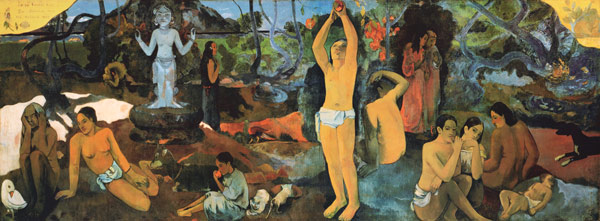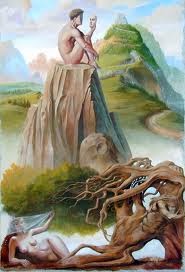
Consciousness can not be explained only in terms of physiological functioning and it certainly has its own nature and reality. The observed is never separated from the observer, the image can not replace the substance. The mental individuation of forms and names is not sufficient to complete the picture of life giving it an entirety. Therefore, looking for a common matrix, in itself and at the same time all-encompassing, I questioned myself and I investigated the nature of the one who asks questions. I called this reflection on reflection: Lay Spirituality.
My journey towards the realization of the unity of life began in 1973, during a profound "spiritual" experience obtained in the presence of my Guru Swami Muktananda. From that moment on I learned to recognize the environment, the people, everything that manifests itself in the world, as a projection of the same consciousness. Consciousness and matter are not separate. In view of this, my life took on new meaning and, seeing no division between the self and the other, my actions also conformed to this awareness.
Everything manifests itself in every single part and every part shares everything.
Later I found that this perception resembled the descriptions of bioregional and deep ecology's description. Putting this holistic feeling into practice is the spontaneous result of that initial experience, but it is not a traced path, it is essentially an ability to respond to different situations in the most appropriate way without having to resort to memory-based construction.
Not that memory becomes useless or harmful, rather it acquires new meaning in consideration of the enrichment it receives in every new experience, without having to submit to the obligation of a payment with previous experiences, so that it is not a trap in which to remain entangled. The recycling of memory is the ability to recover in other forms those ways that served the satisfaction of other and different experiences and situations. Not therefore memory in the repetitiveness of the reaction but in the increase of the ability to respond. Needless to try to give detailed explanations .. we could only define: capacity for growth.
Paolo D'Arpini

Testo italiano
La coscienza non può essere spiegata solo in termini di funzionamento fisiologico e sicuramente possiede una sua propria natura e realtà. L'osservato non è mai scisso dall'osservatore, l'immagine non può sostituirsi alla sostanza. L'individuazione mentale delle forme e dei nomi non basta a completare il quadro della vita dandogli un'interezza. Perciò alla ricerca di una matrice comune, a se stante ed allo stesso tempo onnicomprensiva, mi sono interrogato ed ho indagato sulla natura di colui che si interroga. Ho chiamato questo riflettere sulla riflessione: Spiritualità Laica. Il mio percorso verso la realizzazione dell'unitarietà della vita è iniziato nel 1973, durante una profonda esperienza "spirituale" ottenuta alla presenza del mio Maestro Swami Muktananda. Da quel momento imparai a riconoscere l'ambiente, le persone, tutto ciò che si manifesta nel mondo, come una proiezione della stessa coscienza. Coscienza e materia non sono separati. In considerazione di ciò la mia vita assunse nuovo significato e non vedendo divisione fra l'io e l'altro anche il mio agire si uniformò a questa consapevolezza. Tutto si manifesta in ogni singola parte e ogni parte compartecipa al tutto. In seguito trovai che questa percezione aveva una somiglianza anche con le descrizioni del sentire bioregionale e dell'ecologia profonda. Mettere in pratica questo sentire olistico è lo spontaneo risultato di quella esperienza iniziale, ma non è un sentiero tracciato, è essenzialmente una capacità di rispondere alle diverse situazioni nel modo più adeguato senza dover ricorrere al costruito basato sulla memoria. Non che la memoria diventi inutile o dannosa, anzi acquista nuovo significato in considerazione dell'arricchimento che essa ne riceve ad ogni nuova esperienza, senza dover sottostare all'obbligo di una corresponsione con esperienze precedenti, in modo che non sia una trappola nella quale restare invischiati. Il riciclaggio della memoria è la capacità di recuperare in altre forme quei modi che servirono alla soddisfazione di altre e diverse esperienze e situazioni. Non quindi memoria nella ripetitività della reazione ma nell'accrescimento della capacità di risposta. Inutile cercare di dare dettagliate spiegazioni... si potrebbe solo definire: capacità di crescita.
(P.D'A.)









